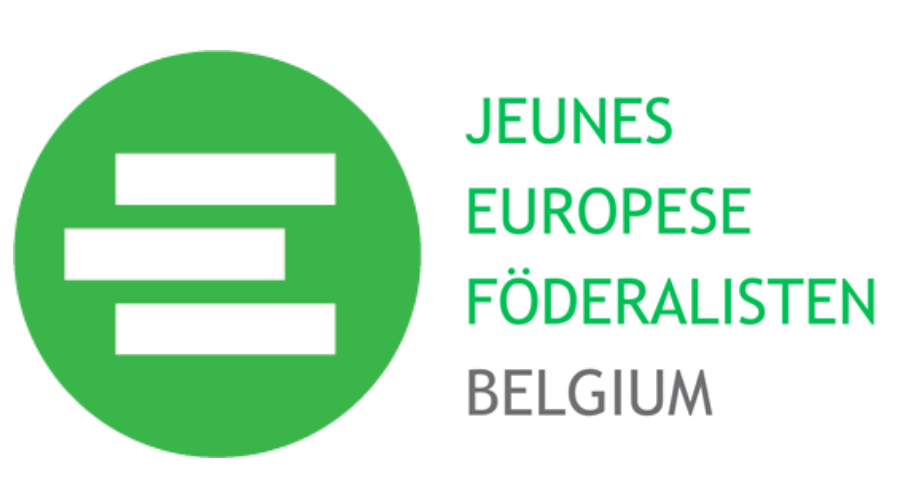After the successful organization of the “Youth Hacks Europe” hackathon in Liege last September, JEF Belgium had the chance to participate in the last advocacy phase of the Y-FED project. For more than a month, we imagined and developed advocacy actions and worked with graphic designers to create a JEF Belgium advocacy toolbox, including a giant EU-themed goose game.
Why? Because complexity takes power away from citizens. Turning European content into games helps explain things more clearly and simply so that people have a chance to better understand what is the EU, what it does for them and how they can actively lobby for change.
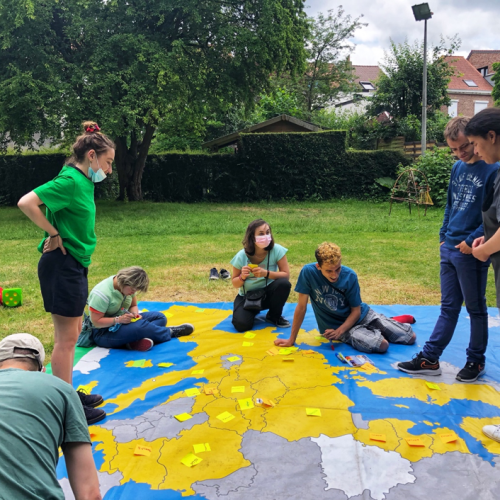
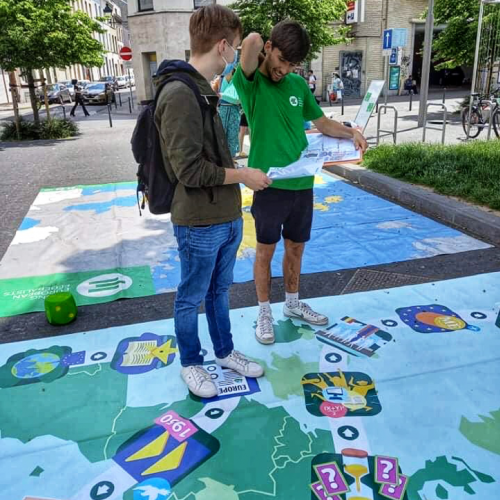
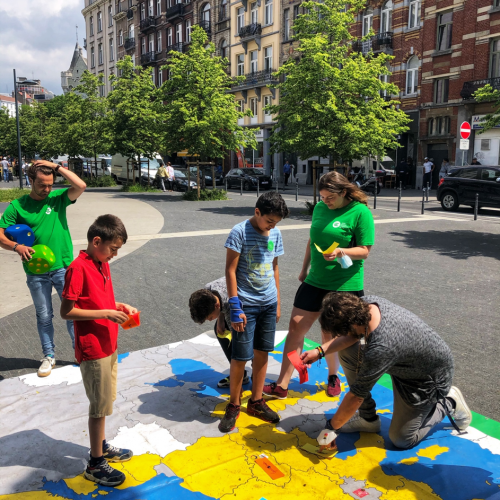
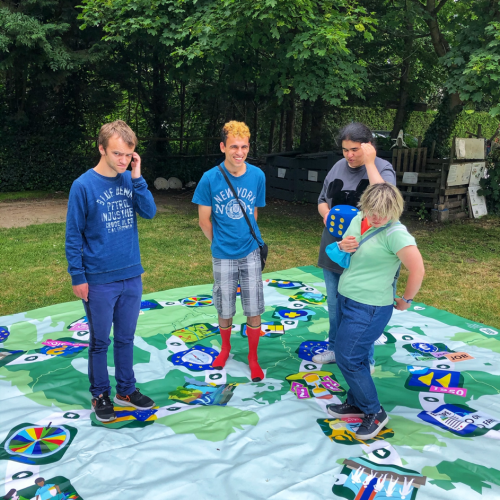
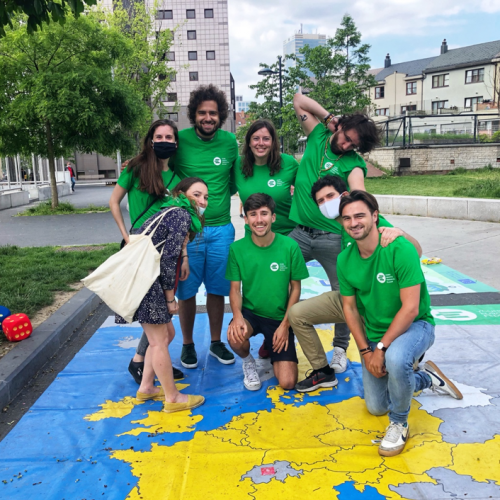
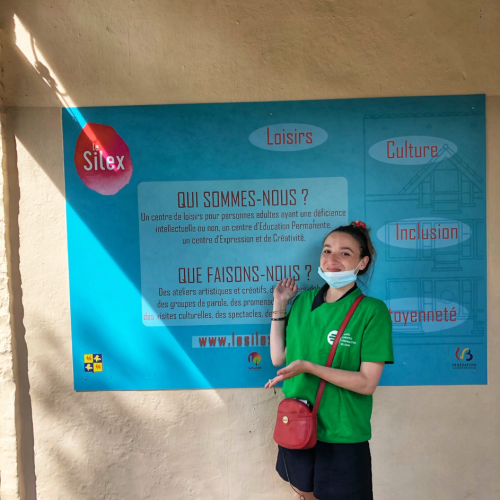
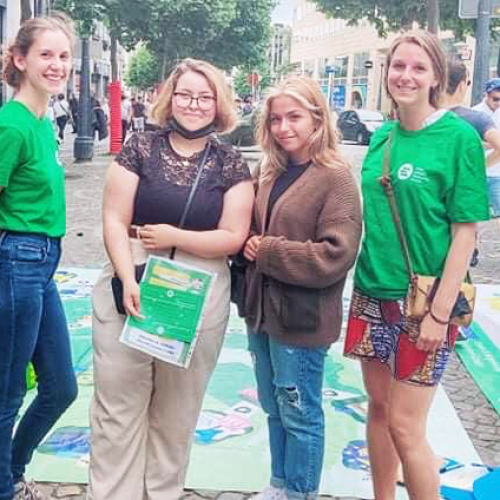
Three weekends in a row, we hit the streets of Brussels and Liège and went to the organization Silex in Woluwe-Saint-Lambert to talk to (young) people about Europe. Our aim: make them aware of their power as citizens and invite them to share ideas for the Future of Europe with decision-makers through an advocacy letter-writing activity.
Actions to be taken
Too many young people, especially in the so-called "less privileged" areas, have very little idea of what Europe is. Then, how can they actively participate in and help to change something they do not fully understand? There is a serious need for European civic education in schools (but not only) in order to give these young people the means to be active citizens and make their voice heard.
Voices to be heard
Many young people have things to say but are defeatist about the possibility of having an impact. Many times we were asked if we really thought our letters would make a difference. It saddens us to see that young people full of creativity and dreams do not even deign to share their opinion because they are discouraged in advance of not being heard.
This speaks volumes about our European democracy and how some young people feel completely left out. Our democracy must not only be open to the voice of the citizens, it must go and get their voices where they are. The Conference on the Future of Europe is an opportunity for the European Union to do better in this area. Beyond the listening exercise, we hope true actions will follow, risking otherwise further breaches in the EU's legitimacy among its citizens.
People to be reached
Finally, this project was an opportunity for our volunteers to practice their non-formal education skills with a more diverse public than the usual target audience, especially young people from culturally-diverse neighbourhoods, but also disabled people, and even homeless people.
This project surely broke down some self-imposed barriers, such as the need for special qualifications to address this kind of public, and motivated us to repeat the experience in the future. It is not difficult, but a matter of being willing to include people and adapt, to allow them to participate into any mainstream activity.
What's next?
We are not stopping here. In the coming months, we intend to use our advocacy toolbox to collect more ideas, especially during our consultations on the Future of Europe in Mons and Louvain-la-Neuve in September. We will then send all these letters to decision-makers to flood their mailboxes with citizens’ letters.
We also plan to ensure a good follow-up of these letters by asking to meet with decision-makers, including the representatives of the Belgian Parliament and Senate sitting in the plenary of the Conference on the Future of Europe.
Stay tuned for the next steps and do not hesitate to contact us if you want to get involved in the project. We always need people to federalize Europe!
A big thank you to the Assembly of European Regions (AER) and JEF Europe for this opportunity.
